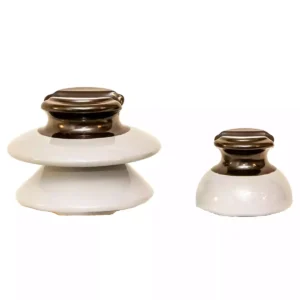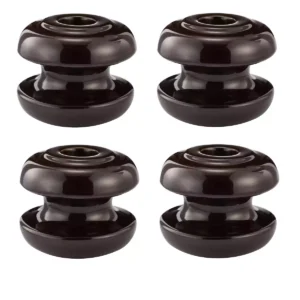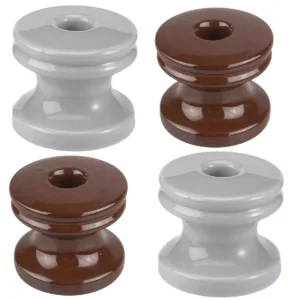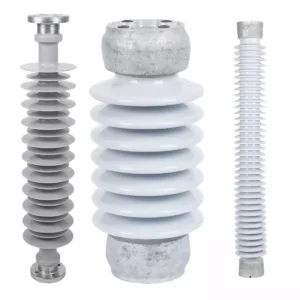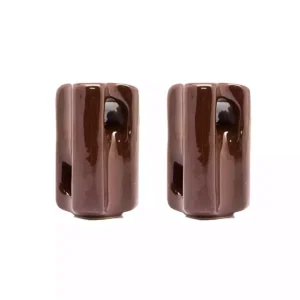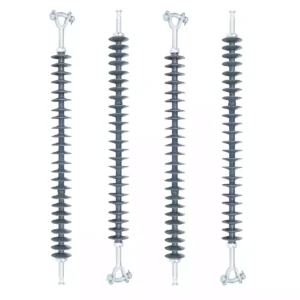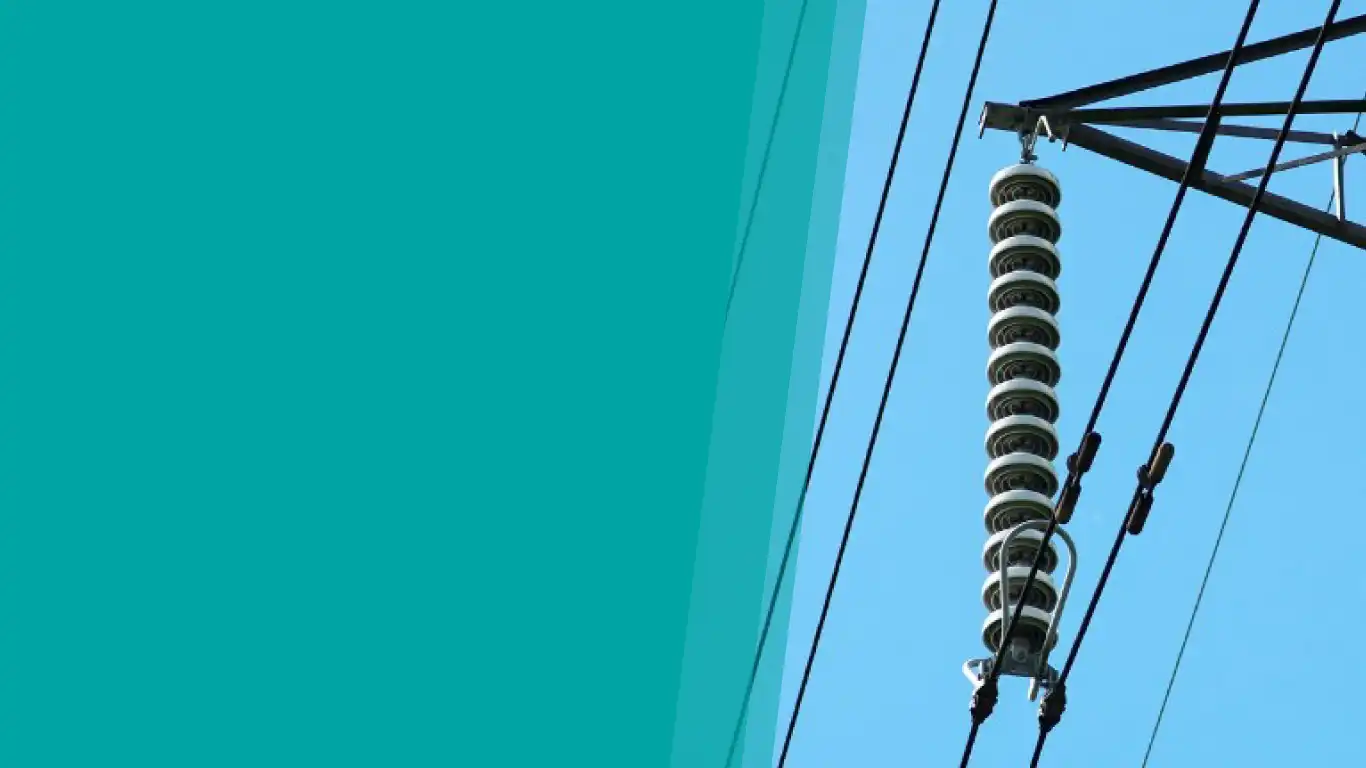
Suspension Insulator
Electrical Insulator Manufacturer
TTF Power manufactures and supplies electrical insulator for overhead power transmission and distribution systems. Insulators are devices used on the overhead transmission lines to prevent electric current from flowing to the unwanted areas in the transmission lines. The material used to make the insulators is resistant to both the electrical current and the other weather conditions which promotes long life of the devices. The insulators are mainly used to protect the conductors and the semiconductors from the excess voltages in the transmission lines.
Electrical insulators are also known as power insulators and they can be used on transmission lines and telecommunication poles. They also help to protect the overhead devices from lightning and current surges. The major types of electrical insulators include pin insulators, post insulators, stay insulators, strain insulators, suspension insulators and shackle insulators. Each of these is made from different materials that make them adaptable to the different use intended for them and the different weather conditions in an environment.
The electrical insulators are important to use in the overhead transmission lines since they act as a barrier to heat flow even in households. The insulators allow easy repair and maintenance since one insulator can be fixed or repaired while the other still remain intact. This is mainly for the porcelain insulators which allow them to have a longer operational life. The insulators are mainly water, oil, wood or paper while the electrical insulators are made from other materials such as porcelain, glass and polymer. The features of these materials are further discussed below.
Electrical insulator materials
The type of materials used to make the insulator is important to identify before buying them as they help to know whether the selected type of insulator will fit the type of work it is intended for and the different weather conditions in the area. The most common materials that are used to make the insulators are glass, porcelain and polymers which are further discussed below.
Porcelain insulators
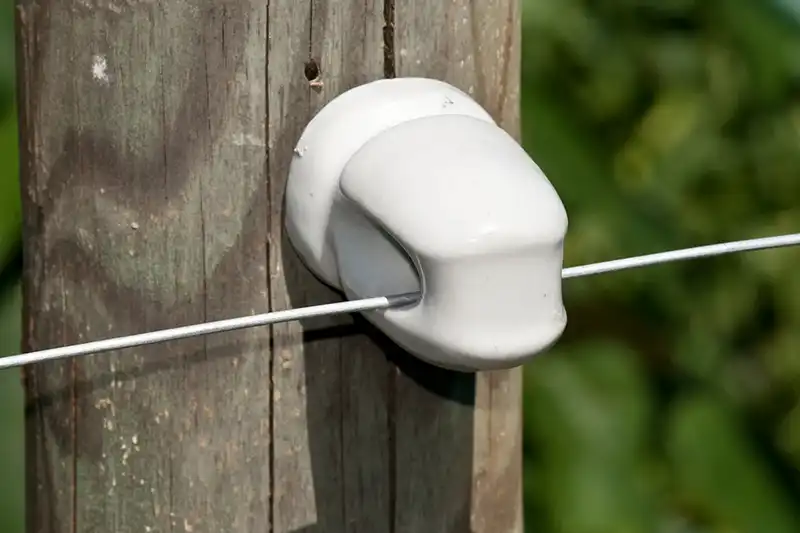
This is the most preferred material for insulators used in the overhead transmission lines. It is made from a combination of materials like clay, aluminum silicate, quartz and feldspar. It is then concealed with a smooth glaze that provides protection from dust, moisture and other impurities. It does not have any level of porosity which helps it to preserve its dielectric strength.
It does not have any cracks or bubbles and this helps it to keep its insulation resistance high. It is flexible enough to be hooked on any shape or design which makes it the popular type of insulator material. It has the ability to survive under any conditions which increases its versatility. This means that the insulator cannot be affected even on the drastic high temperatures.
Glass insulators
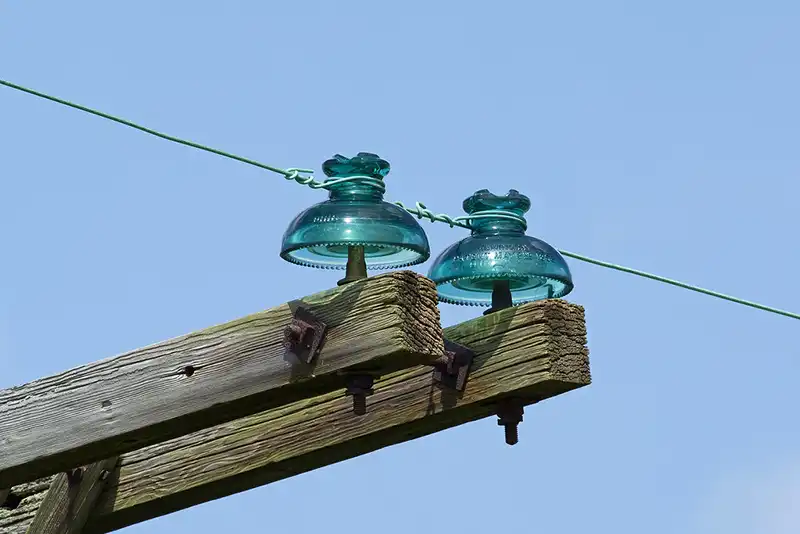
This type of material has high resistance to electricity and has low factor for thermal expansion. It has higher dielectric strength compared to the porcelain due to its hardening process which is used for manufacturing them. It is also important as the insulating properties of glass cannot be affected by the external temperatures. This is because the tensile strength of the glass material prevents it from heating up in case of high temperatures.
Another advantage of the glass material is that glass has longer service life than porcelain. Glass insulators are cheaper than the porcelain and the polymer insulators.
Polymer insulators
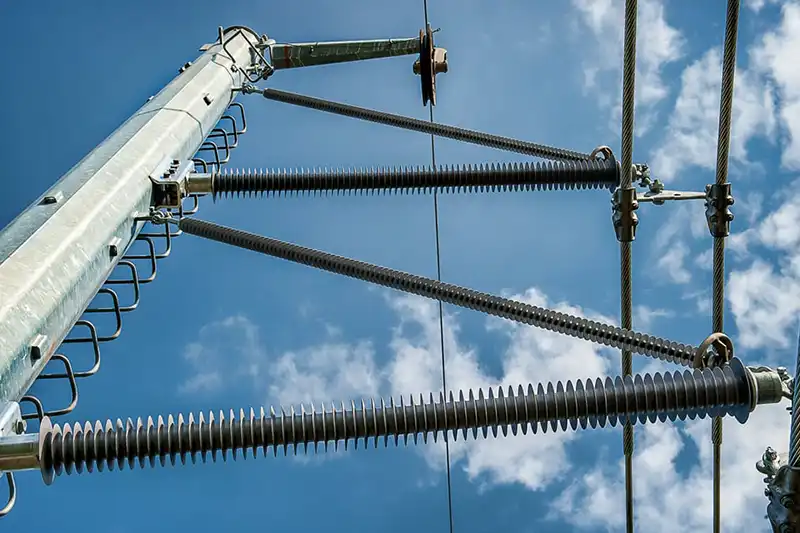
This insulator is also known as composite insulator which is used in the overhead lines. It consists of an epoxy resin, fiberglass and a rod-shape core which is properly enclosed with sheds of the polymer. The rod is connected with galvanized steel on both ends to help it resist the electrical heat as well as the environmental heat. They are also lightweight and can be transported without breaking or getting damaged. They also have high tensile strength which makes them the best insulators for areas with high level of environmental pollution.
The main disadvantage of the polymer insulators is that they tend to experience current leakage which happens when moisture finds its way into the insulator.
Other factors to consider when checking the materials for insulators include:
- High electrical resistance to avoid current leakage.
- The material should be free of contaminations.
- Should have high mechanical strength to support the load.
- The insulating material should be non-porous.
Benefits of electrical insulator materials
Other than the basic benefit of not allowing the electric current to pass through them, electrical insulator materials have many more benefits.
- They ensure safer power transportation by blocking current so as to provide the ability to decide how to use the power. This is important to the power companies who wish to transport the power over long distances.
- They maintain the electrical integrity by using them as a barrier with which the electrical charges can pass through without leaking. They provide the ability to transform electricity from a bare, uncontrollable force, to a clean, controllable source of energy that can be utilized.
- They provide a safer use of the electrical appliances and tools used in almost all households. The insulators prevent electric shocks to the human skin when they are installed on all the electronic appliances such as electric cars, electronic ignition systems and hairdryers among others.
- They help to develop safety measures which help to cut down accidents caused by electricity. This is done by using insulators in power plants and transmission towers.
Types of electrical insulators
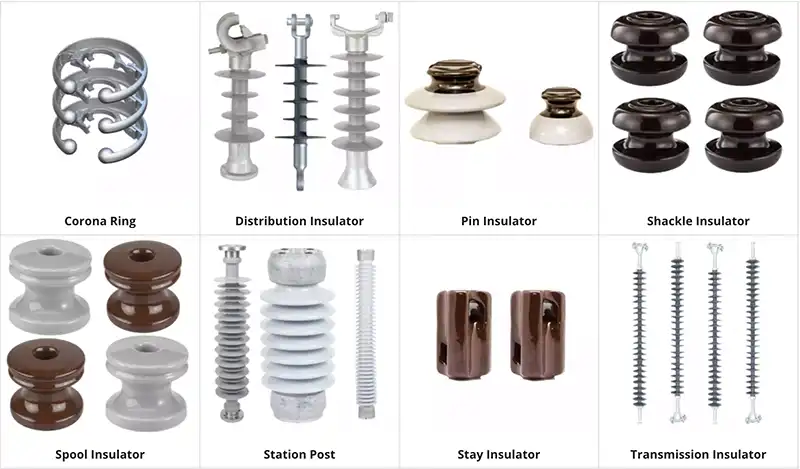
The electrical insulators can be used on different series of applications and are divided depending on the volume of the current into low voltage insulators, medium voltage insulators and high volume insulators.
Pin type insulators
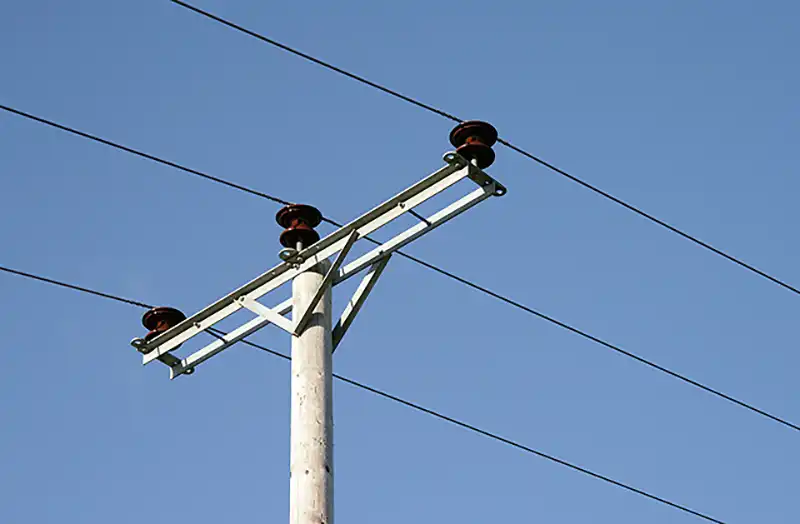
Pin type insulators are used for supporting the low voltage power lines. They can be used on the conductors and also on the cables with low voltage. They have shells which are arranged in equivalent before being mounted on the pole or tower. The design is made in such a way that the inner parts are always dry to prevent electrical leakage. The conductor is bound on the top of the insulator and then it is supported by a galvanized pin. A thimble is used to avoid straight contact between porcelain and pin.
Advantages of pin insulator
- It is easy to create and install.
- It provides an effective way of supporting conductors.
- It is cheaper than other insulators.
Disadvantages of pin insulator
They can only be used for voltages below 50KV and if used for the higher voltages they become bulky.
Suspension type insulator
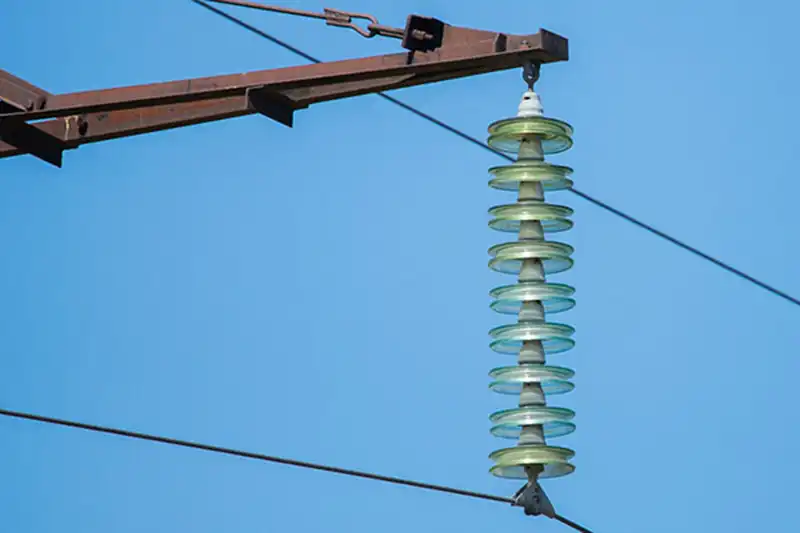
Suspension insulators are used for the high voltages and supporting high voltage conductors. They have porcelain discs which are organized in a series to form a string-like structure. The conductor is adjourned at the lower end while the other end is attached to the pole or tower. The porcelain insulators used on the arrangement will depend on the working voltage.
Advantages of suspension type insulator
- It is cheaper for the high voltages.
- The arrangement of the porcelain provides a supple operation.
- Adding more insulators provides more insulating capacities.
- It also provides protection from lightning when used on the steel tower.
- An insulator can be added or replaced if one fails while the others remain intact.
Disadvantages of suspension type insulator
The only disadvantage is that large spacing between the conductors is required as compared to the other types of insulators.
Post insulators
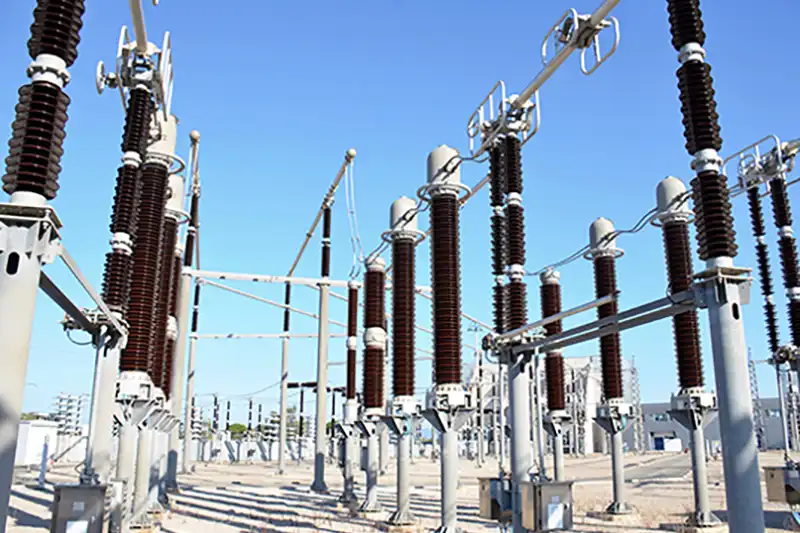
Post insulators that are fixed on the electrical pole for the transmission lines. They are however divided according to the usage and the position it is installed on the pole which include tie top line post insulator, horizontal and vertical line post insulators, under arm line post insulator and clamp top line post insulators.
Stay insulator
Stay insulator is mostly used in high and medium voltage lines for rural and railway. It also called a guy insulator or an egg insulator.
Shackle insulator
Shackle insulator is also known as a spool insulator and is usually used for the low voltage power lines. It has a hole which ensures that the load is equally distributed to all directions and it can be connected both horizontally and vertically.
Strain insulator
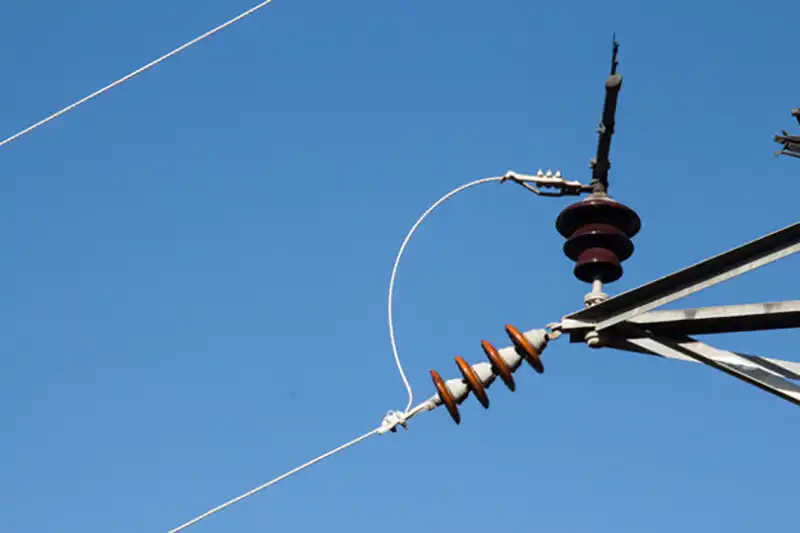
Strain insulators are also known as tension insulators and dead end insulators. They are used when the conductor is subjected to high tension over particular sections. They are mostly used in high voltage power systems.
Classification of insulator
The electrical insulator types are identified depending on their usage and volume of voltage it can handle. They can therefore be low voltage insulators, medium voltage insulators and high voltage insulators. The various types of electrical insulators therefore include the pin insulator, suspension insulator, stay insulator, shackle insulator, post insulator and strain insulator.
Insulators can however be classified into two forms. That is solid insulators and liquid insulators.
Solid insulators — glass or ceramics and dielectrics are made from materials with solid constructions. The materials are present in the form of thin layers on which the conducting layer sits. This creates an obstacle that allows the current to flow in a solitary direction only. The different types of solid insulator materials include: glass or ceramics, plastics and copper.
Liquid insulators — these are the insulators that are known for their ability to hold the electrical charge indefinitely. They are mainly used for making capacitors whose basic working code lies in the temporary storing of electricity so as to make the flow smooth. The common types of liquid insulators include: mercury liquid metal, silicone and natural esters.
Things to consider when choosing electrical insulator
When planning to purchase the transmission line insulators, there are factors and features to consider. Some factors include the mechanical strength, tensile strength, porosity and the resistance to impurities. The manufacturer and producers of the insulators should also be considered as the different manufacturers may produce different features from the others. The durability of the insulators is dependent on its features. The features of electrical insulators are as discussed below.
Features of transmission line insulators
High voltage resistance — this means that the insulators should be able to resist high voltages in order to prevent damage to the conductors. This also makes them applicable to all the electrical power systems.
Lightweight — the insulators should carry minimum weight despite being made from quality material. This makes sure they are easy to handle and transport and also reduce overhead load.
Custom design — some manufacturers take the designs from the customers and manufacture them according to their needs instead of the standard designs.
High impact resistance — the insulators should be able to resist the physical impact which makes them ideal for all kinds of environments. They should also be resistant to shock and vibration.
Strong and durable — the insulators should be built to be steady and last long which makes them attract less repair and maintenance.
Air permeability — the insulators should allow a unified flow of air through them which is essential for managing heat on high power transmission lines.
There are other factors to consider when planning a purchase which include:
- The distance between poles should not be so long.
- The material of the insulator is also important in order to know where they should be used in terms of weather conditions.
- The dielectric properties of the insulators determine the amount of current to pass through.
- The voltage head determines the voltage passing through the conductor.
- Environmental factors such as temperature, rain, snow and humidity should be considered to ensure the insulators are not damaged.
- The cost of the insulator is also important to know because cheap insulators may turn to be more expensive in the long run especially during repair and maintenance. The different manufacturers offer different prices for the insulators.
FAQ
What is an insulator?
An insulators is a material that does not allow electric current to pass through them.
What are the materials used to make electrical insulators?
Electrical insulators are mainly made from porcelain, glass or polymers.
What are the strongest types of insulators?
The strongest types of insulators provide an immediate barrier between conductors and electric currents and they include rubber, glass, pure water, oil, dry wood, diamond, plastic, asphalt, air, dry cotton, dry paper and fiberglass.

